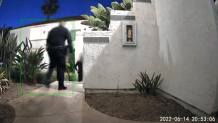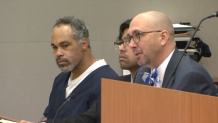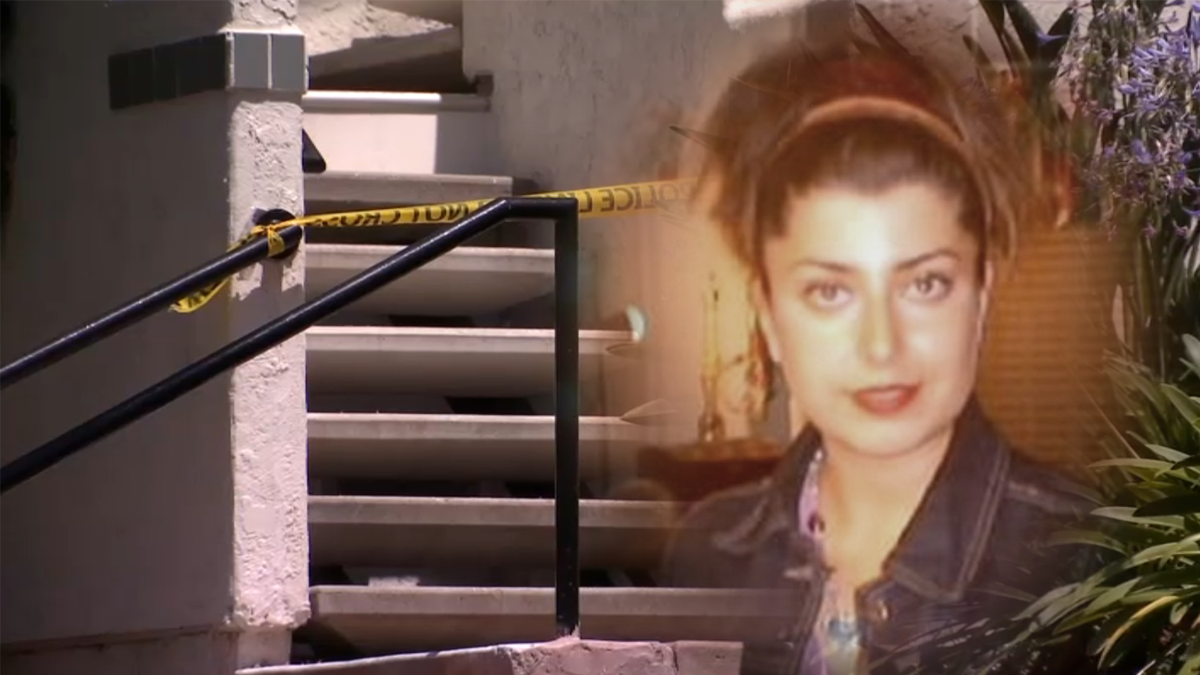The waiting game is finally over for the friends and family of a woman who was killed inside her Rancho Peñasquitos condo just over two years ago. The man accused of murdering Connie Dadkhah goes on trial Tuesday. Prosecutors have prepared a case against Parrish Chambers, Jr. that could last more than two weeks, with more than 50 potential witnesses ready to testify. He’s pleaded not guilty.
The high-profile case grabbed attention not just for the dramatic way Connie’s life ended, but also for the scrutiny that emerged about the San Diego Police Department’s emergency response and decision-making the night police say her suspected killer invaded her home.
The calls for help

Police dispatch records show that around 7 p.m. on June 14, 2022, Connie’s neighbors began calling 911. They begged police to get there quickly, reporting that a belligerent man was trying to break into a woman’s condo. Initially, the call wasn’t prioritized. About an hour later, callers had new information to tell dispatchers; that man had scaled a wall to her second-floor balcony and smashed his way inside through a sliding glass door. While police upgraded the call to a higher priority, it took another 45 minutes for officers to arrive at the complex.
Those same dispatch records, along with court filings from prosecutors, reveal what happened next. Officers tried to make contact with Connie by calling her phone, knocking on her door, and using a loudspeaker. But officers left the scene 15 minutes later after failing to make contact with anyone inside. There’s no record of Connie calling police that night.

The next morning, prosecutors say a blood-spattered Chambers emerged from Connie’s apartment and flagged down a neighbor to call 911 to report she was dead inside. Officers immediately took Chambers into custody and he was charged with murder.
In defending their decision not to force entry the night before, police told NBC 7 Investigates they had reason to believe that Chambers lived there. That was based on a dispatch record that responding officers had access to. But police also told us there were other considerations that night.
“When you’re going to force entry into someone’s home, that is the highest level of legal standard we operate under,” said San Diego Police Lt. Stephen Shebloski. “So you have to be on point legally and tactically. Because if officers go in and make the wrong decision on a poor guy that left his keys in there and broke into his own house and a significant use of force, or God forbid officers use deadly force, there is going to be a lot of hard questions asked of that supervisor and those officers.”
But Chambers didn’t live there and our investigation revealed that police didn’t seem to have the complete picture of that suspect’s history with Connie.
Chambers wasn’t supposed to have any contact with Connie

In the months that followed, NBC 7 Investigates poured through court documents, analyzed police records, and spoke with experts about the case. We learned Connie knew Chambers and records show he’d been accused of victimizing her repeatedly for years. That included:
- An incident in 2020 where Chambers was convicted of vandalism that included a judge’s order for him to stay away from her.
- An incident in 2021 where prosecutors accuse Chambers of dragging her into a car at a Mountain View parking lot and driving off.
- Multiple encounters in 2022 where prosecutors say he battered her, including one two months before she died.
The nature of their exact relationship isn’t clear, but Connie’s friends say she met Chambers through her volunteer work with mental health outreach. They say he became smitten with her, tracked down her address, and constantly visited despite repeated requests that Chambers leave her alone.
Court records indicate that Chambers’ public defender Abe Genser intends to paint a different narrative during the trial. One that alleges the two had a tumultuous sexual relationship that included drug use.
What’s expected at trial

Jury selection begins Tuesday with the trial expected to last up to two weeks or longer. Much of the evidence will likely be difficult for jurors to see and hear and could include autopsy and crime scene photos. The San Diego County Medical Examiner says Connie died from a brain bleed, with blunt-force trauma to her head and body. Her family told us how difficult it was visiting the condo afterward while they dealt with Connie's belongings.
“It was a bloodbath,” Sara Dadkhah told us. “I mean it was definitely a crime scene. You could see blood splattered all over. There's no mistake…there was something very violent and deliberate that took place.”
Chambers is facing four charges during his trial connected to several criminal incidents that span 8 months: murder, two counts of battery, and one count of false imprisonment. He’s pleaded not guilty.
A trial that almost didn’t happen
The public is usually kept in the dark about potential plea deals and their negotiations. This case is unique because the suspect’s own public defender revealed the San Diego County District Attorney’s office rejected his plea deal offer.
That came to light as part of a Racial Justice Act motion. That law allows the court to dismiss cases if defendants can prove racial bias was exercised during an interaction with law enforcement or prosecutors.
Genser argued that the DA’s office is racially biased against Black defendants because it’s accepted similar plea agreements from white defendants. He highlighted two other homicide cases he said were more egregious than Chambers’ case.
“One case is pouring boiling water over a person until they died,” Genser said. “The other case is raping a person to death.”
For Chambers, Genser says his client was prepared to accept a plea deal of 17 years in prison for voluntary manslaughter, an acceptance of responsibility for her death, and two strikes on his record. He says that offer was rejected by the district attorney’s office.
But a judge didn’t agree that was enough to show racial bias and refused to grant Genser’s motion to compel the DA’s office to release other records about plea deal negotiations. It’s unclear if a judge will hear more Racial Justice Act arguments in this case.
Police face civil action from Connie’s family

In January, Connie’s family filed a federal civil rights lawsuit against the San Diego Police Department. It alleged the department failed to act to protect Connie, resulting in her death. Late last month, Judge Ruth Montenegro dismissed the case for a variety of reasons saying police weren’t legally responsible for her death and that attorneys failed to prove many of the claims in the suit.
The family’s attorney, Timothy Scott, told NBC 7 Investigates he intends to file an amended lawsuit against police following the conclusion of the criminal trial. Scott says he hopes new information comes to light in the case so his firm can “continue to quest for justice for Connie and her family.”




